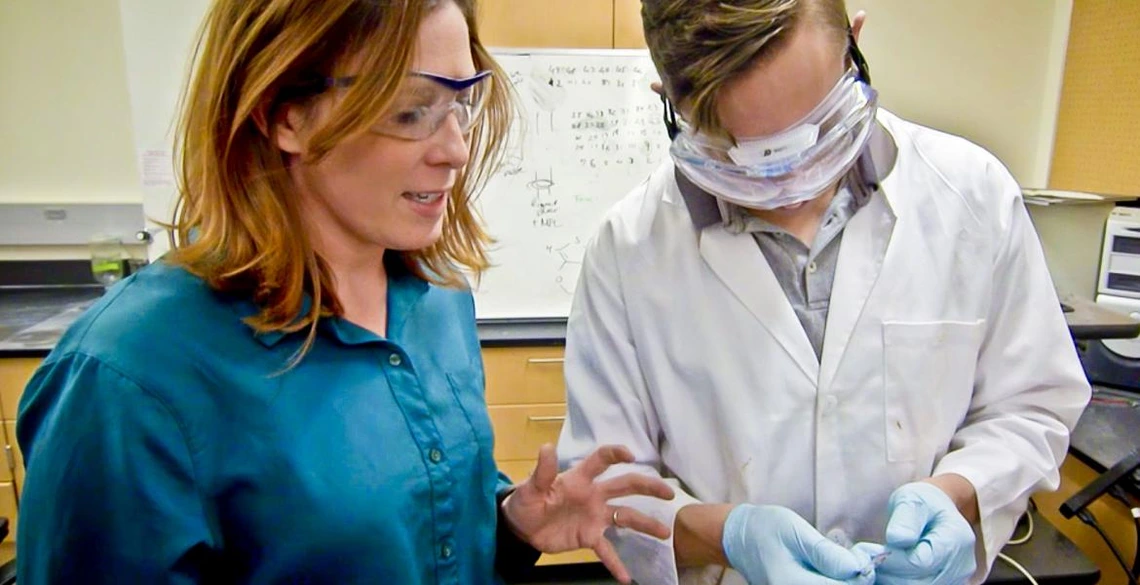Finding New Methods for Organic Bioelectronics

Assistant professor in materials science and engineering Erin Ratcliff’s experiments with organic polymers boost prospects for developing more sensitive wearable and implantable bioelectronics that can record, regulate and repair what ails us.
In a paper co-authored with postdoctoral associate Melanie Rudolph, Ratcliff demonstrated new ways to achieve selectivity for biomarkers, which is accomplished by processing a polymer in such a way that it precisely controls the rate of charge transfer between itself and a biomarker molecule.
Most of today’s electronics are made from inorganic semiconductive materials that are highly effective, but expensive and limited in compatibility with biological systems. In the field of organic bioelectronics, engineers are using organic conductive polymers to create electronics that are low-cost and lightweight, flexible and wearable, and easy to print.
